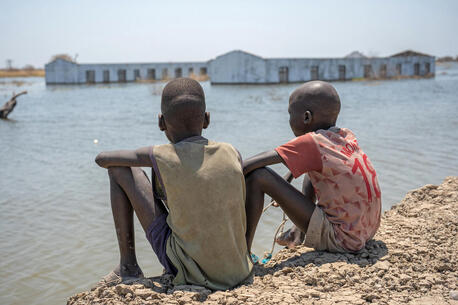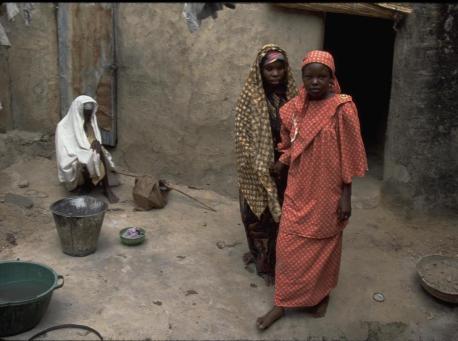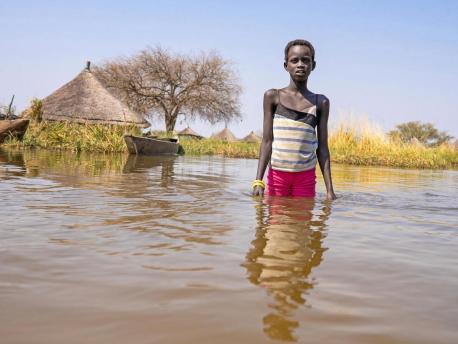
Emergency Relief Delivery in South Sudan
Hopes were high when South Sudan declared independence from Sudan in 2011, but the eruption of civil war in 2013 has left the world's youngest nation mired in violence and dangerously underdeveloped. Four million people have been displaced — 60 percent of them children — since the conflict began.
An agreement signed in September once again raised the prospect of a sustainable peace, but many across the country remain desperately in need of humanitarian supplies and medical care. Nearly 60 percent of the population — 6.1 million people — faced crisis levels of food insecurity at the peak of the lean season this summer.
To reach isolated communities not accessible by road or cut off by conflict, UNICEF and partners including the World Food Programme (WFP) send integrated rapid response teams and supplies by helicopter.
More than 170 integrated missions have been conducted since 2014, assisting more than 3 million people. Local citizens volunteer to help with distribution of Ready-to-Use Therapeutic Food, hygiene and sanitation equipment, educational materials and other supplies while medical personnel vaccinate children against polio and measles and screen them for malnutrition.
Gender-based violence can occur on the way to emergency food distribution centers. Reports that more than 150 women and girls have sought treatment for rape and other acts of sexual abuse in the past 12 days near Bentiu, the second-largest city in South Sudan, underscore the brutality of the conflict and the extent to which civilians have been targetted in the fighting.
The victims were reportedly attacked while walking to emergency food distribution centers. In the first half of 2018, some 2,300 cases of gender-based violence were reported to service providers. More than 20 percent of survivors who have come forward are children. The actual number of cases is thought to be far higher, as gender-based violence continues to be severely under-reported.
"The assailants have been described as armed men, many in uniform," United Nations Under-Secretary-General for Humanitarian Affairs and Emergency Relief Coordinator, UNICEF Executive Director Henrietta H. Fore and United Nations Population Fund Executive Director Natalia Kanem said in a joint statement.
"We call on the relevant authorities to publicly denounce the attacks and ensure that those responsible for these crimes face justice. All parties to the conflict must uphold their obligations under international humanitarian law and cease attacks on civilians."
Top photo: Local volunteers unload supplies from the back of a helicopter in New Fangkak, Jonglei State, South Sudan in July 2018. The supplies included tetanus vaccine and polio drops, Ready-to-Use Therapeutic Food, sanitation and hygiene kits and educational materials. © UNICEF/UN0230252/Elrington
HOW TO HELP
There are many ways to make a difference
War, famine, poverty, natural disasters — threats to the world's children keep coming. But UNICEF won't stop working to keep children healthy and safe.
UNICEF works in over 190 countries and territories — more places than any other children's organization. UNICEF has the world's largest humanitarian warehouse and, when disaster strikes, can get supplies almost anywhere within 72 hours. Constantly innovating, always advocating for a better world for children, UNICEF works to ensure that every child can grow up healthy, educated, protected and respected.
Would you like to help give all children the opportunity to reach their full potential? There are many ways to get involved.





